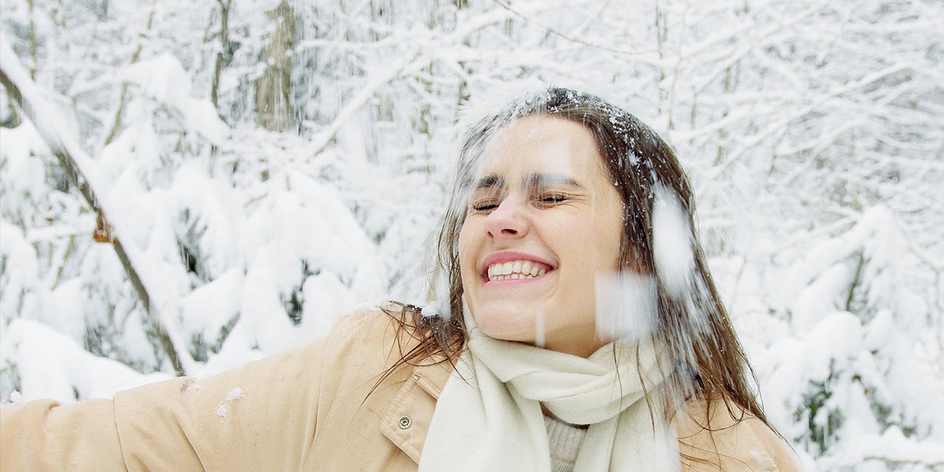Winter Oral Health: Protecting Your Smile in the Cold Months
Winter might be known for its festive holidays, cozy moments by the fireplace, and snowy landscapes, but it's also a season that presents unique challenges for oral health. As the temperature drops, our teeth and gums can become more susceptible to various issues. Armed with knowledge, however, you can ensure that your smile remains bright and healthy throughout the winter months.
Challenges to Oral Health in Winter
- Cold air can be a nightmare for people with sensitive teeth. As per Today's RDH, the sudden exposure to cold temperatures, whether from outside air or cold beverages, can cause tooth pain. This sensitivity arises when the tooth's enamel wears down or gums recede, exposing the dentin and allowing cold to irritate the nerve.
- Winter's dry air, both outside and from indoor heating, can lead to chapped lips. Not only can this be uncomfortable, but cracked lips can also create openings for bacteria to enter.
- The University of Illinois Chicago College of Dentistry points out that during winter, many people experience dry mouth due to reduced fluid intake or breathing through the mouth because of nasal congestion. A dry mouth can increase the risk of cavities since saliva helps neutralize harmful acids.
- Consuming more acidic food and drink during the winter holidays, such as citrus and spicy foods, can lead to irritating canker sores, especially if you’re also dealing with dry mouth.
Preventive Measures for Winter Oral Health
1. Protect Against Tooth Sensitivity: Use a toothpaste formulated for sensitive teeth. These toothpastes often contain potassium nitrate or strontium chloride, which can help block the transmission of pain signals from the tooth surface to the nerve inside. Additionally, avoid brushing too hard. Use a toothbrush with soft bristles and gently brush in a circular motion.
2. Keep Lips Moisturized: Protect your lips by applying a lip balm with SPF. Remember, UV rays can still affect you during winter! Reapply balm frequently, especially before going outside, and choose a product that contains natural moisturizers like beeswax or aloe.
3. Hydrate, Hydrate, Hydrate: Drinking water is essential in winter. Not only does it keep your body hydrated, but it also helps produce saliva, which protects against cavities. Consider carrying a refillable water bottle to remind yourself to drink regularly. Warm herbal teas can also be a good choice, as they are hydrating and don’t contain erosive acids or sugars.
4. Use a Humidifier: Indoor heating systems can dry out the air in your home, contributing to dry mouth and chapped lips. A humidifier can reintroduce moisture into the air, creating a more favorable environment for oral health.
5. Limit Acidic and Sugary Foods: While it's tempting to indulge in citrusy or spicy holiday treats and sugary beverages, moderation is key. These can erode enamel and increase the risk of cavities and canker sores. If you do partake, drink water afterward to help rinse away acids and sugars.
6. Regular Dental Check-ups: Winter is no time to skip your dental appointments! Regular check-ups can identify potential issues early, ensuring they don't worsen.
7. Wear a Scarf or Mask: If cold air triggers your tooth sensitivity, consider wearing a scarf over your mouth or a mask when you go outside. This barrier can warm and humidify the air you breathe, making it gentler on your teeth.
Stay proactive, adjust your oral care routine to the season, and always prioritize your dental well-being.
Sources:

